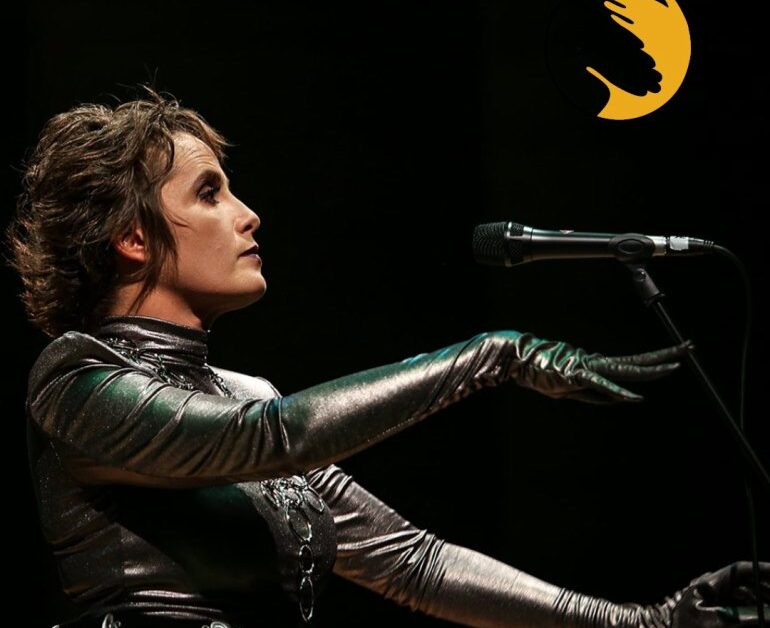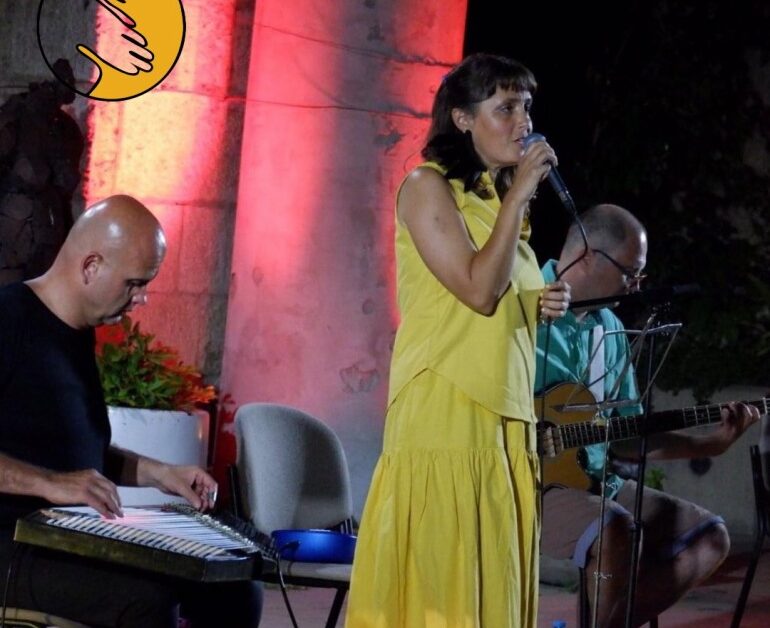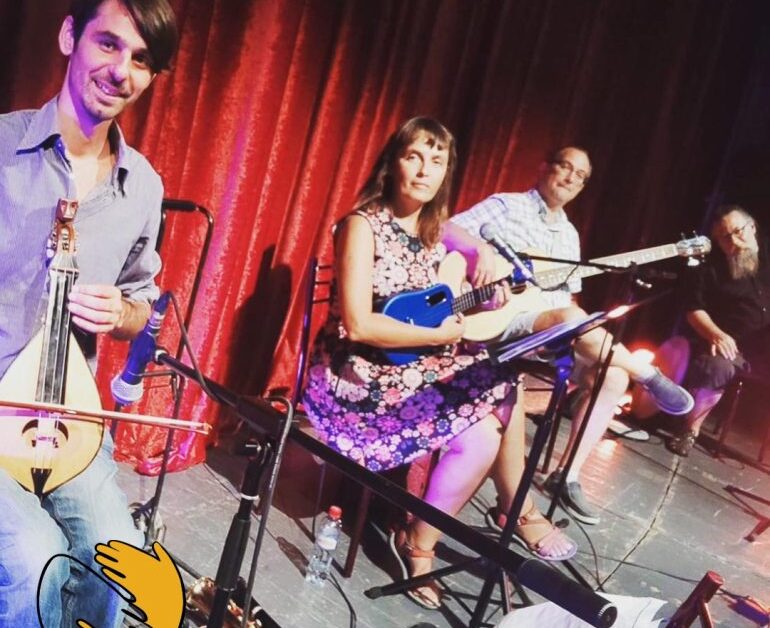Elena Hristova is a singer, musician, composer, researcher, documentarian and educator. In the world of world music, she is known for her band Baklava, as well as for the projects Bioscopia, Bistri Vodi, Backyard jazz orchestra and collaborations with numerous musicians all over the world.
Apart from Skopje, she lives and works in Istanbul. She was the singer of the band BaBa ZuLa for years. She translated the research of tradition and traditional music into music and documentaries.
When and how did you start following your musical path?
Before I was born (laughs). For as long as I can remember, music has been one of the most powerful means of communication for me. The house of my childhood was filled with song and music. Making music is something that constantly happened around me: like breathing, eating, walking, swimming. I was not aware that one day it would become my profession. Even as a child, I fell in love with choral music and found myself in this form of musical communion. I also sang in several pop-rock and metal bands. I performed all other current genres that I loved and listened to.
When I was twenty years old, authentic Macedonian traditional music fundamentally transformed me. I was overwhelmed and fascinated by the ritual singing that I heard in the villages, on archival recordings, as well as the voices and instruments of the orchestra with which I started making music. Later, this love grew into a musical journey through space and time. It grew into getting to know and studying different traditional music of the world, discovering deeper and deeper layers, connecting and exchanging. World music has become my lifestyle. I can translate literally everything I could think of into it, as if in some unique fusion. It’s like cooking delicious food with lots of spices.
Who inspires Elena Hristova? What drives you to create?
I find my inspiration in simplicity. I find it in meekness, modesty, openness, but also spirituality and joy of life in musical expression. Music is a dance, a hug, expressed love and connection. Music is understanding.
I create when I am joyful and present. When an inner voice whispers something to me, I follow it. There is no escaping that. Sometimes he wakes me up from sleep. Then I simply have to create. I have a choice to ignore that voice or to embrace it and make it happen.
How does your art affect the community?
I love bullying people by making them sing and dance (laughs). The souvenir I bring back from the trip is a song I learned from a local in his language, in his style, according to his choice.
Contact and fellowship, as well as concerts and recordings, are all different media through which our creation touches someone, sends a universal message. We are just some kind of messengers, postmen (laughs).
Tell us more about your artistic style.
My style is based on tradition and traditional music, as well as on the influences of different types of music with which I resonate. This implies active travel and anthropological study, a constant search for living and virtual sources of tradition, but also complete freedom and spontaneity in expression. When I compose and make arrangements, as well as when I perform, I collaborate with musicians to whom I leave a lot of space for improvisation. All this is exotic and sumptuous, but not only because of the exotic instruments. It is real mastery to create a composition that travels to different styles by changing the state of matter (laughs).
Macedonian tachycardic rhythms
Elena will lead a singing workshop. She prepared several traditional Macedonian songs that have complex irregular exotic rhythms. It is a precious material, an abundance of ravishing rhythms, with which we will improvise, creating a magical musical body game.
How do you teach and what are your favorite teaching methods?
I like the therapeutic approach in teaching. This implies the exchange of life experiences between the participants through play, without burden or pressure. Magic occurs when everyone dives into himself freely and without fear, and then it transforms into a collective, strong connection of the community. It is exactly the same as when children dive into play, forgetting about everything else.
What is your workshop at the Festival about? Who is it intended for?
For my workshop I chose a traditional polyphonic Macedonian song with an irregular rhythm. I will teach the rhythm, melody and lyrics of the song and we will play with movements, percussion and different voices. My workshops are intended for everyone.
The text prepared and edited by Jelena Antić Gagić and Ana Vrbaški





